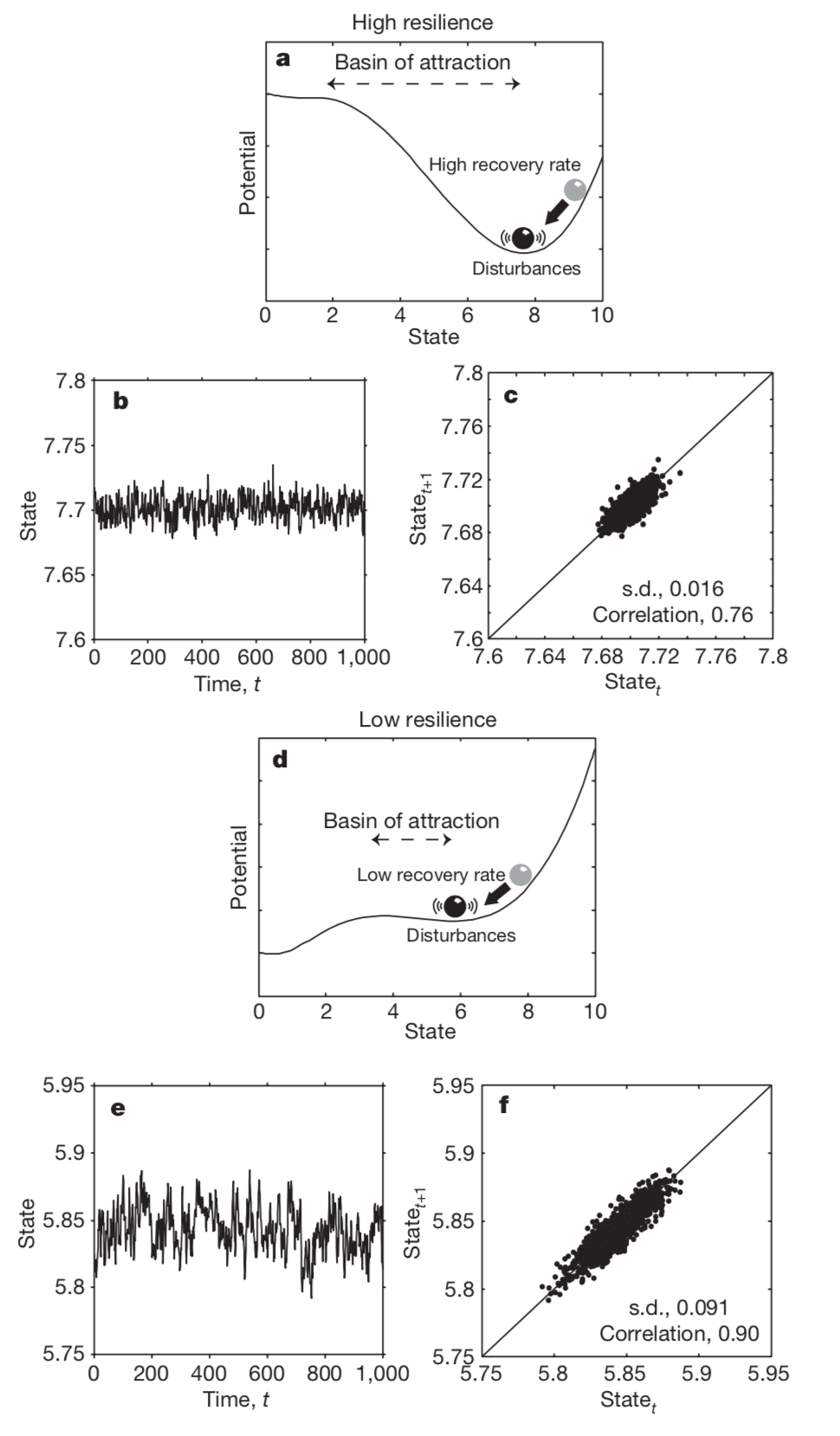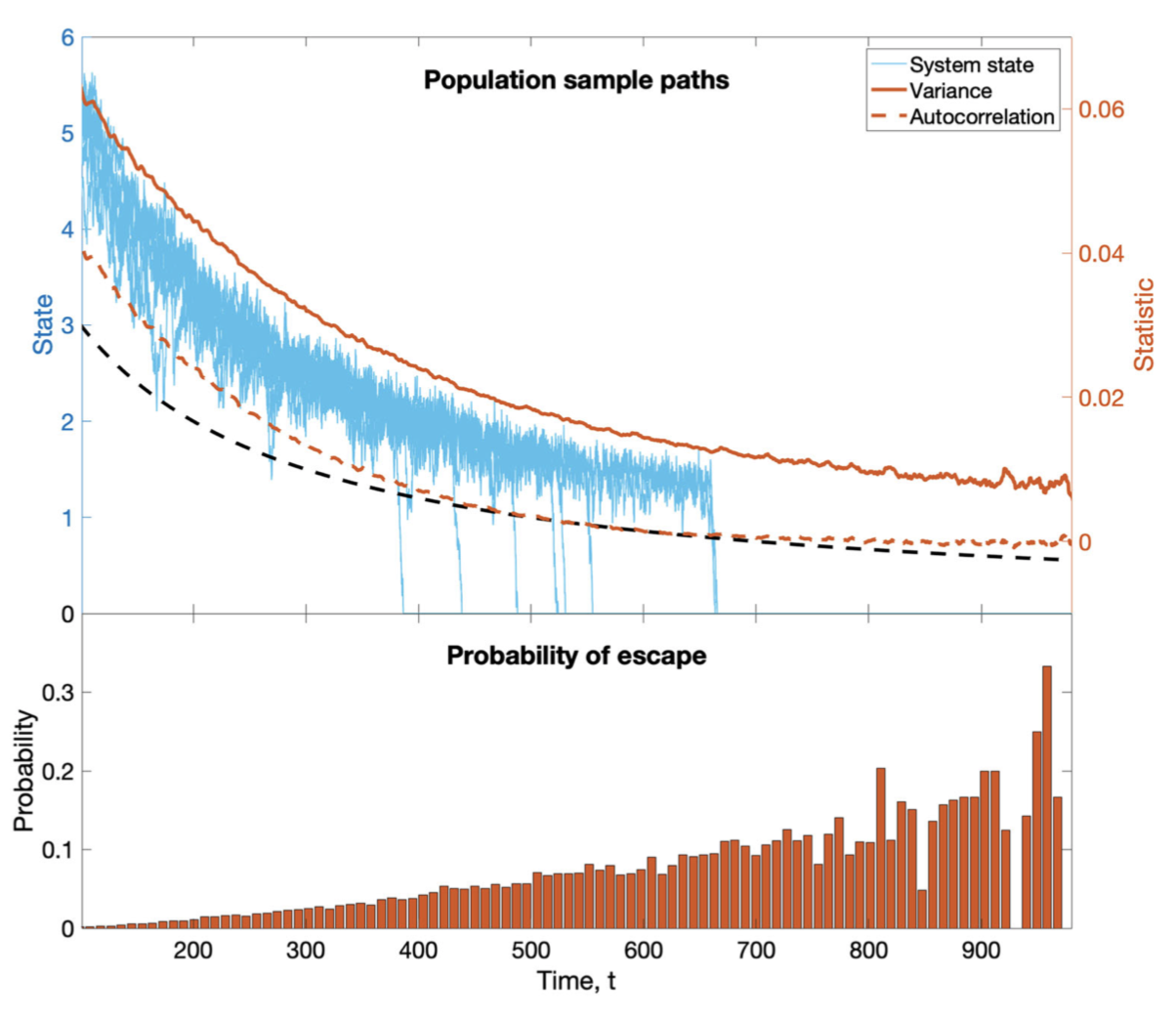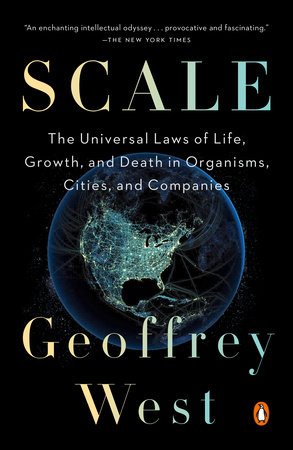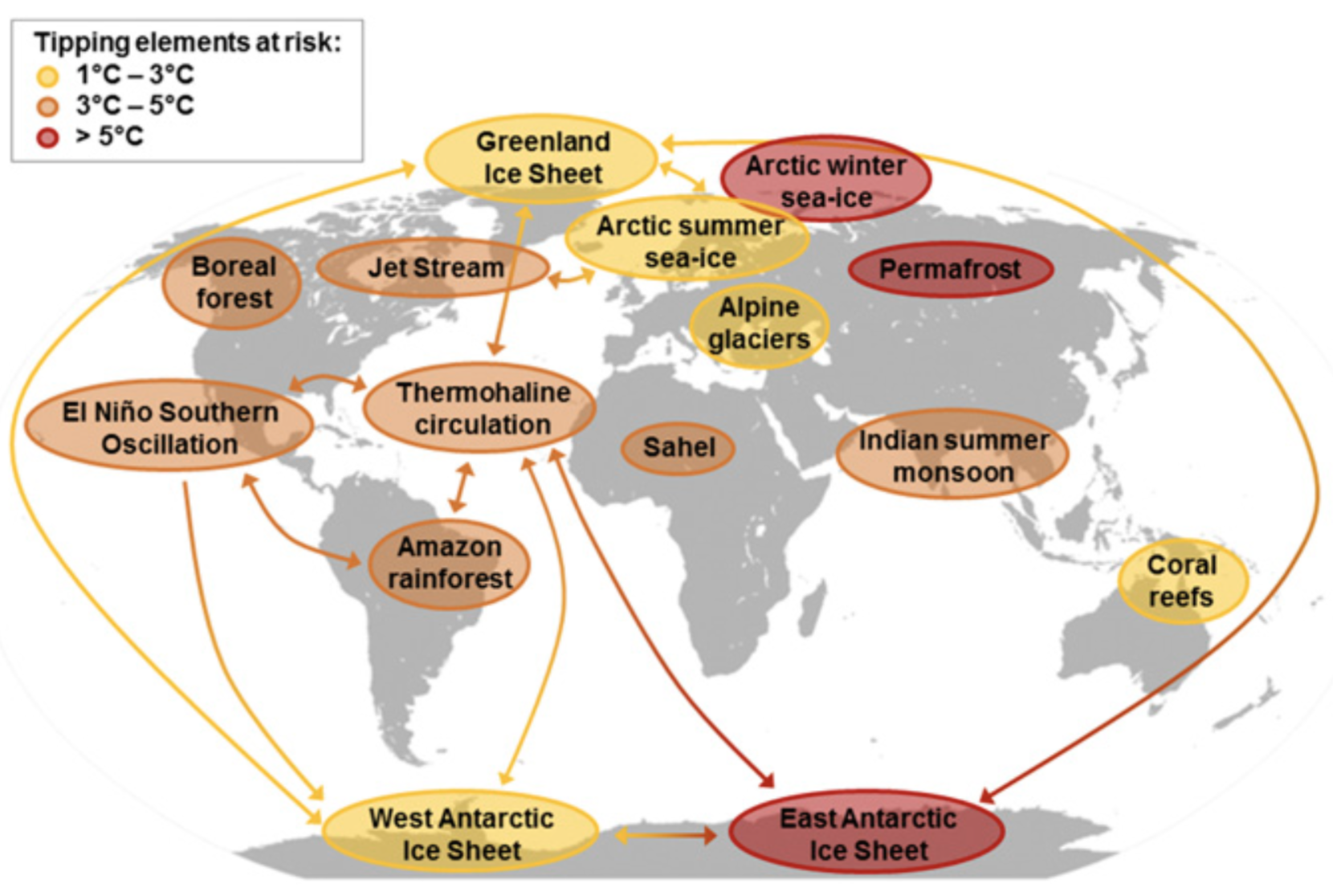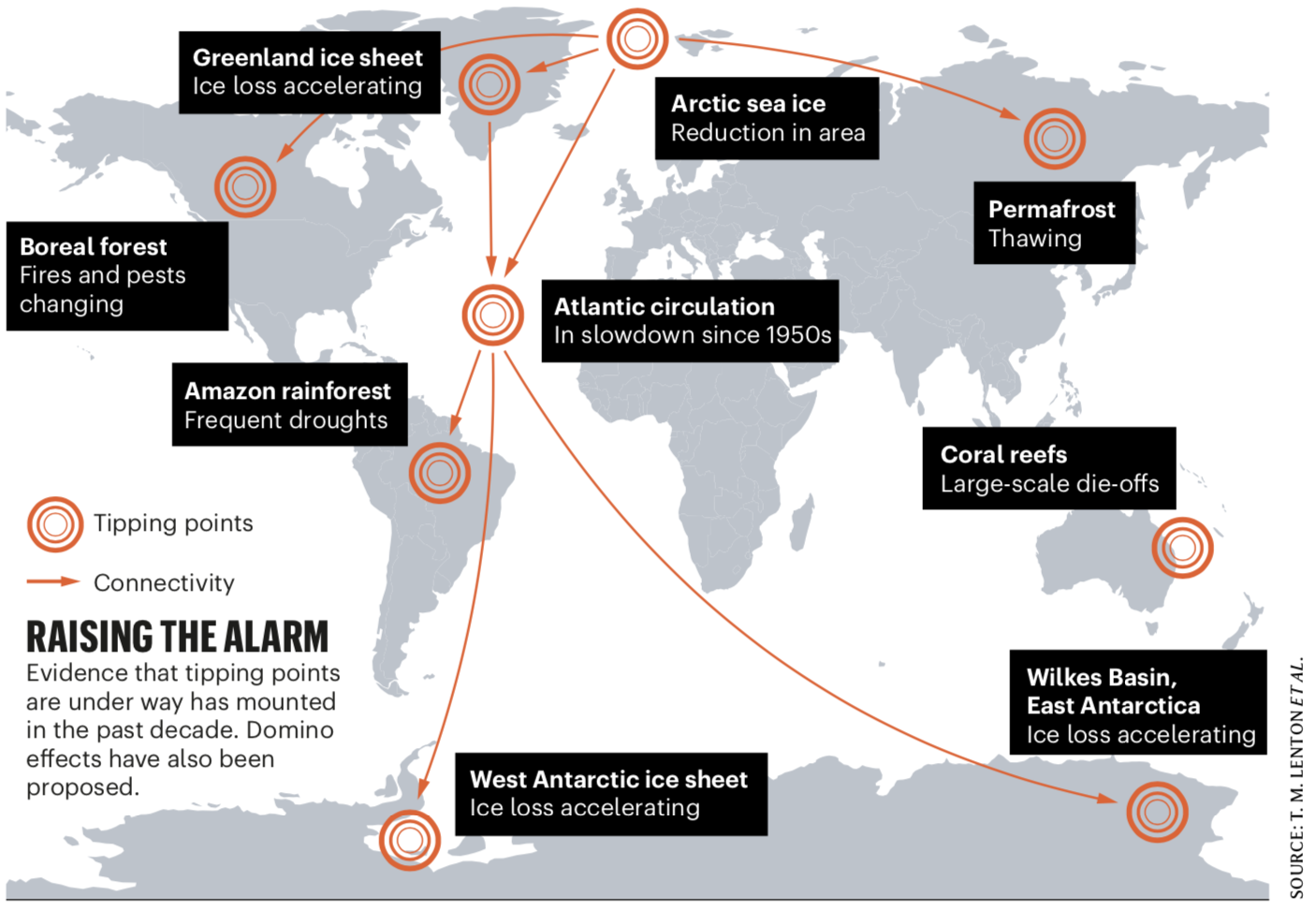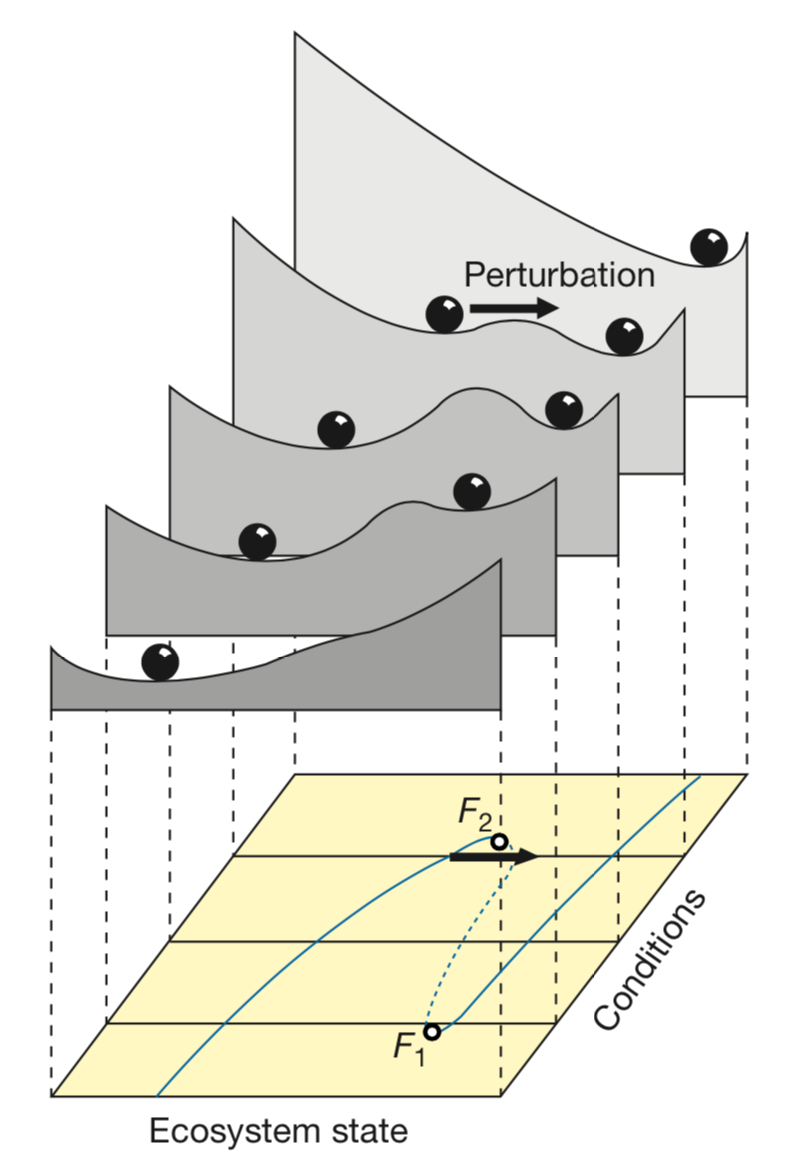
Detecting resilience loss in ecosystems



resilience | rɪˈzɪlɪəns | (also resiliency)
noun [mass noun]
1 the capacity to recover quickly from difficulties; toughness: the often remarkable resilience of so many British institutions.
2 the ability of a substance or object to spring back into shape; elasticity: nylon is excellent in wearability, abrasion resistance and resilience.
Resilience
The capacity of any system to absorb disturbance and reorganise while undergoing change so as to still retain essentially the same function, structure, feedbacks, and therefore identity
Folke, C. 2016. “Resilience (Republished).” Ecology and Society doi:10.5751/ES-09088-210444.
Resilience
- Henri Poincaré discovered bifurcations in 1886
- Bifucations (non-linear dynamics) are foundational to studies across natural, social sciences and humanities.
E.g poverty traps, segregation, evolution of cooperation, cancer, language, finance, climate, the states of matter, among many others. - In 1960-70s ecology: related to the meaning of stability and catastrophe theory
(Lewontin, MacArthur, Holling, Ludwig, Walters, Noy-Meir, May)
Forest to savanna
Regime shifts are large, abrupt and persistence critical transitions in the function and structure of (eco)systems
Coral transitions
Regime shifts are large, abrupt and persistence critical transitions in the function and structure of (eco)systems
Fisheries collapse
Regime shifts are large, abrupt and persistence critical transitions in the function and structure of (eco)systems
Regime shifts history
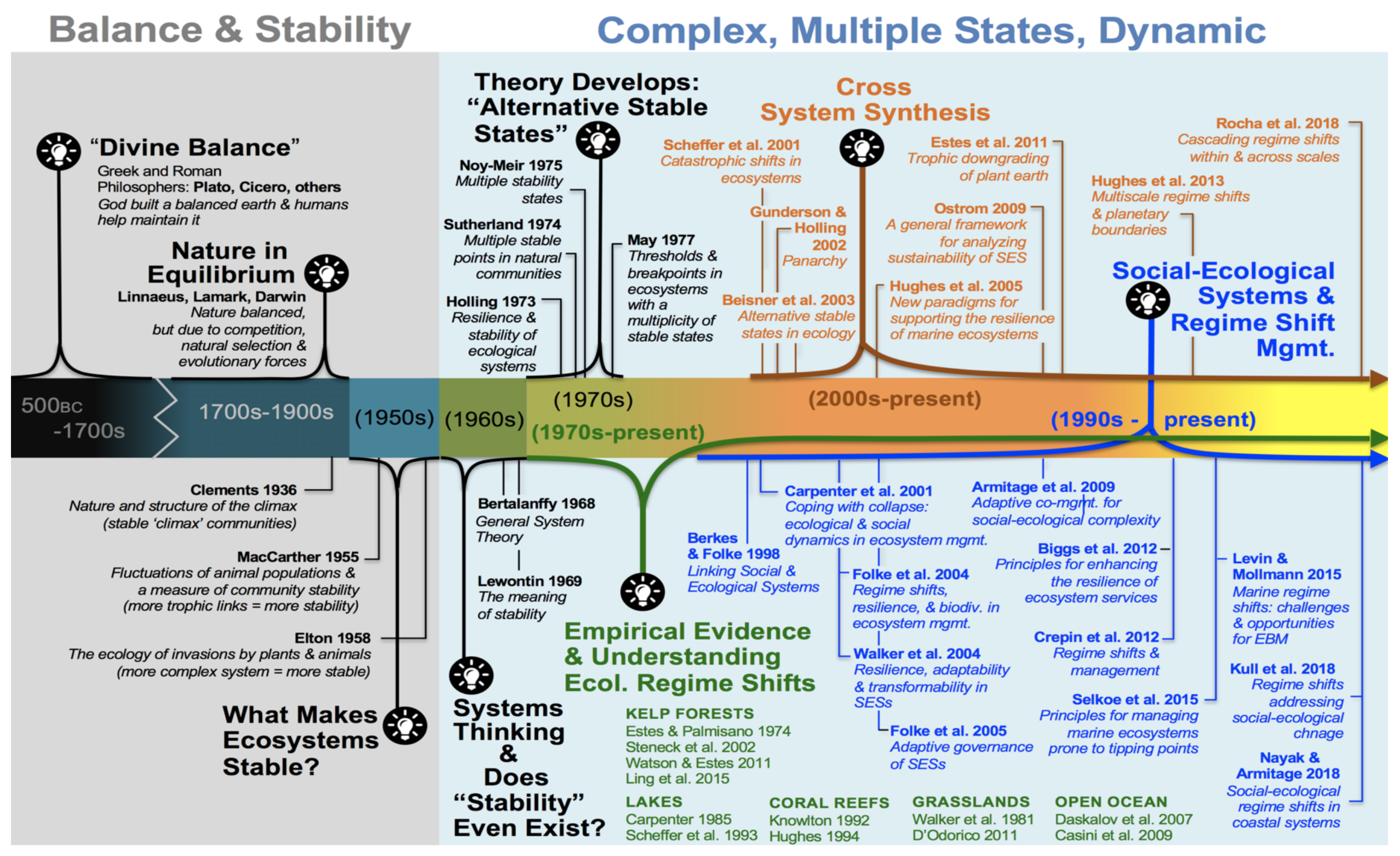
Source: Jenn Burt PhD Thesis
Regime shifts
Very difficult to predict, and hard –sometimes impossible– to reverse
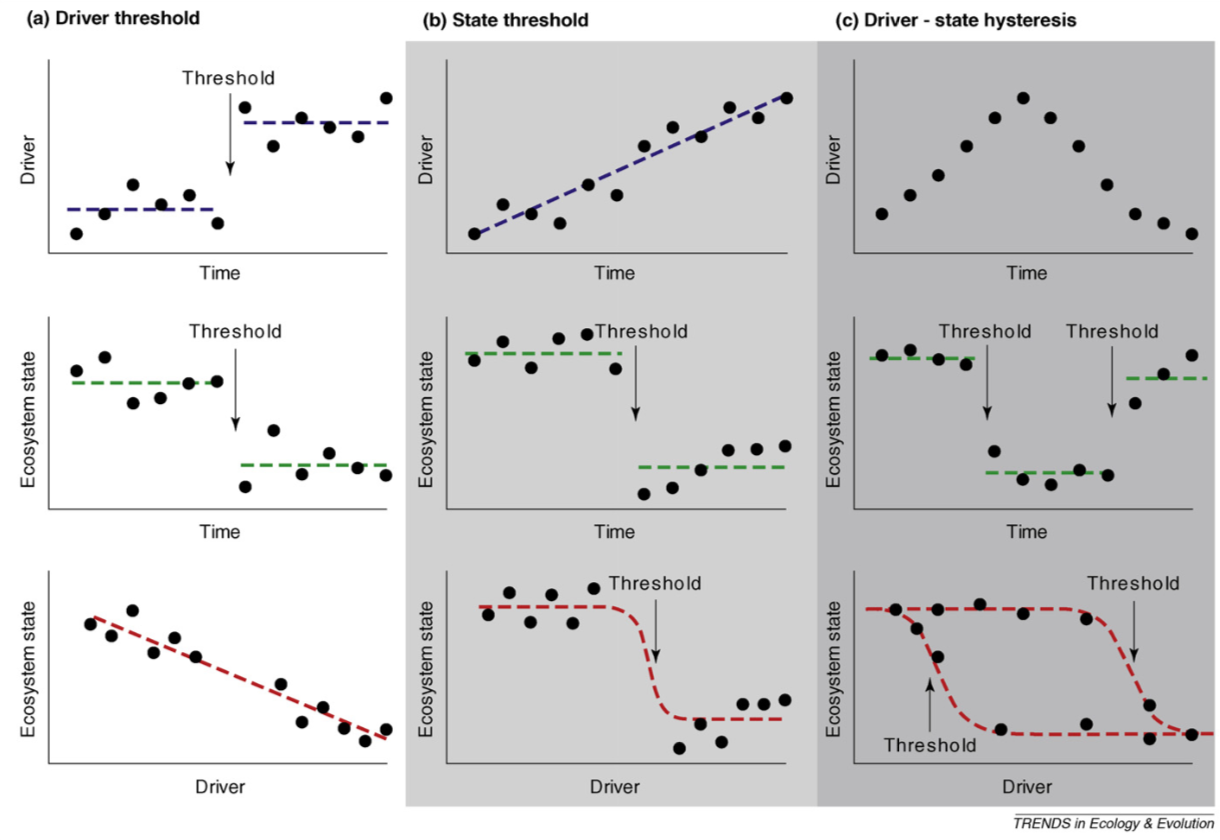
Andersen, J. et al. Trends Ecol Evol. (2009).
Abruptness affects the capacity to adapt to changes
Regime shifts and resilience
- Size of the basin of attraction
- Depth
- Slope
- Proximity to the boundary
- Property of the system or the regime (state variable)?
- Property of the disturbance?
- Resilience of what to what?
- How to identify good / enough observables?
Clark, W 1975 IIASA
Menck et al 2013 NatPhys
Carpenter et al 2001 Ecosystems
Why are regime shifts important?

- Reduce the benefits people get from nature
- Difficult to anticipate and hard and costly to reverse
- Difficult (unethical) to perform experiments
- Often studied in isolation
- How do we compare them? Biggs et al 2018 EcolSoc
- What are their main drivers? Rocha et al 2015 PlosONE
- What are their main impacts? Rocha et al 2015 PhilTransB
- How can they be interconnected? Rocha et al 2018 Science
Where are regime shifts likely to happen?
Detecting resilience loss in ecosystems
Resilience indicators
- ↑ Variance and autocorrelation
- Δ skewness and kurtosis
- Model-based indicators:
- Diffusion jump models
- Time varying AR(p) models
- Threshold AR(p) models
- Potential analysis
- Spatial indicators:
- Fourier transforms
- Power spectrum
- Patch-size distributions
Critical slowing down
- Variance and autocorrelation
- NDVI: normalized difference vegetation index
- VOD: vegetation optical depth
- Limited spatial and temporal resolution
- Confirm a threshold: 1500mm
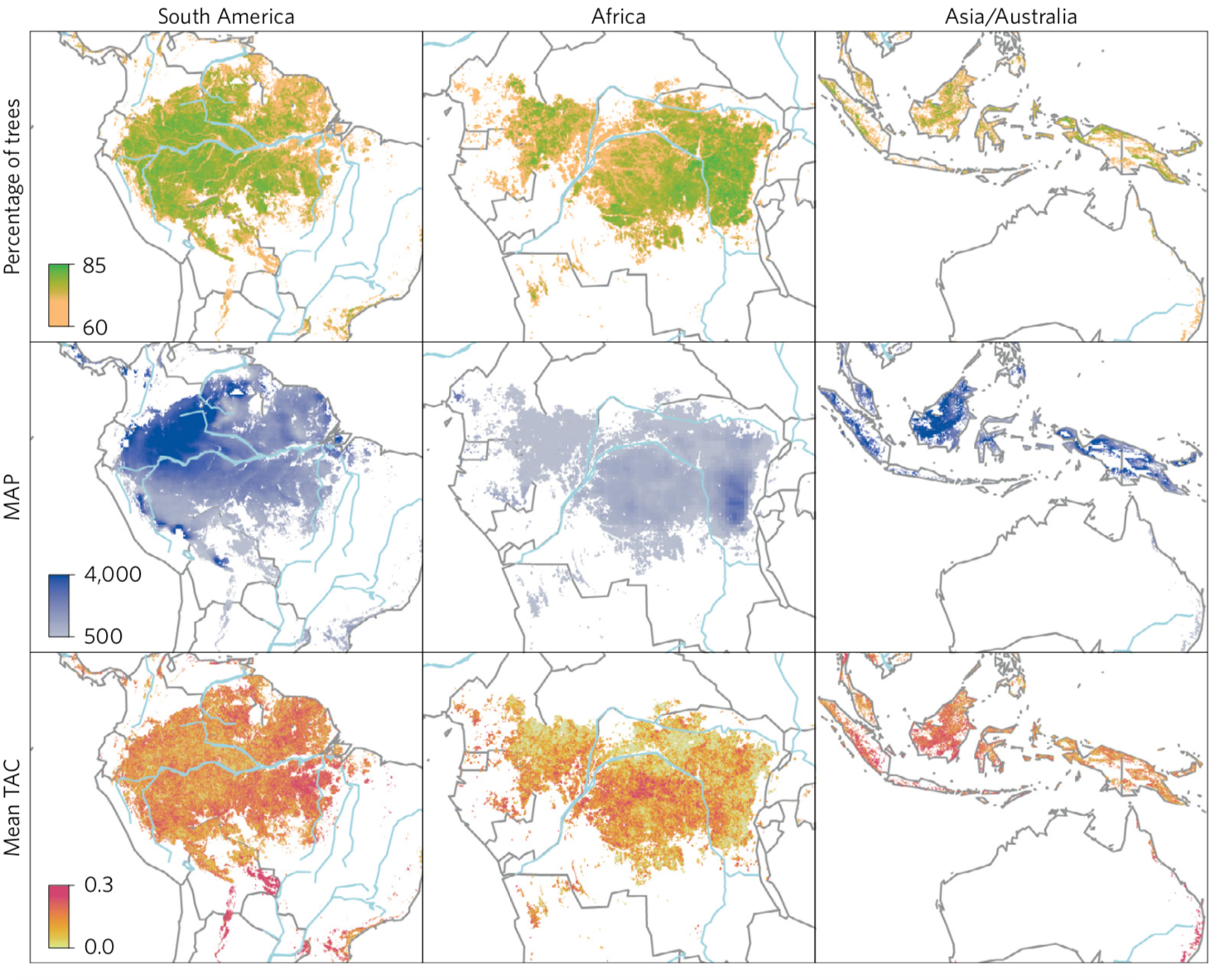
Verbesselt J, et al. Remotely sensed resilience of tropical forests. 2016.
Limitations: fail when dynamics are driven by stochastic processes or when signals have too much noise
Resilience indicators
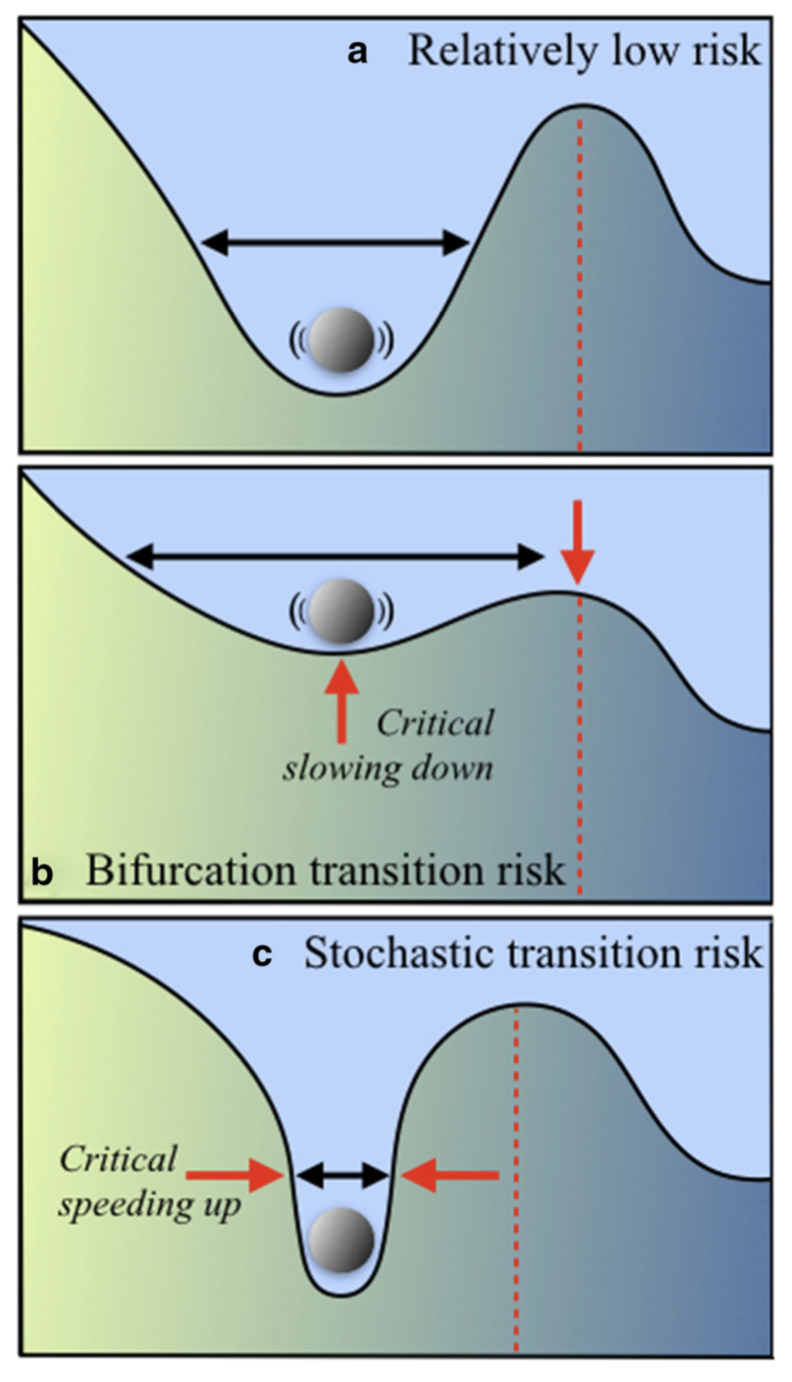
Resilience indicators
- ↑ adaptive capacity
- Measure of self-similarity across scales
- Fractal geometry:
- Bounded
- Magnitudes do not depend on scale
- Clear interpretation
- Applications in medicine
West, Bruce. 2010. Frontiers Physiology
Gneiting et al. 2012. Statistical Science.
Data
- Imputed missing values (MSC)
- Fourier transform
- Trend
- Long-term variability
- Annual cycle
- Fast oscillations
- Normalized 0-mean 1-variance
- Unit root test & first-difference
- 50% window size
- Weekly obs, 0.25 degree grid (N = >1M pixels)
- Terrestrial:
- Gross primary productivity (2001:2018)
- Ecosystem respiration (2001:2018)
- Leaf area index (1994:2017)
- Marine:
- Chlorophyll A (1998:2018)
Analysis: one pixel
- Segmented regression
- Identifies a break point
- Because the time series is normalized, the slope on the base line should be close to zero.
- Slope2 after breaking point
- Davies test = whether slopes are significantly different
![]()
Muggeo VMR. Estimating regression models with unknown break-points. Stat Med. 2003;22(19):3055–71.
- Segmented regression
- Identifies a break point
- Because the time series is normalized, the slope on the base line should be close to zero.
- Slope2 after breaking point
- Davies test = whether slopes are significantly different
Muggeo VMR. Estimating regression models with unknown break-points. Stat Med. 2003;22(19):3055–71.
![]()
Gross primary productivity  Terrestrial ecosystem respiration
Terrestrial ecosystem respiration 
~30% of ecosystem show symptoms of resilience loss, boreal forest and tundra particularly strong signals
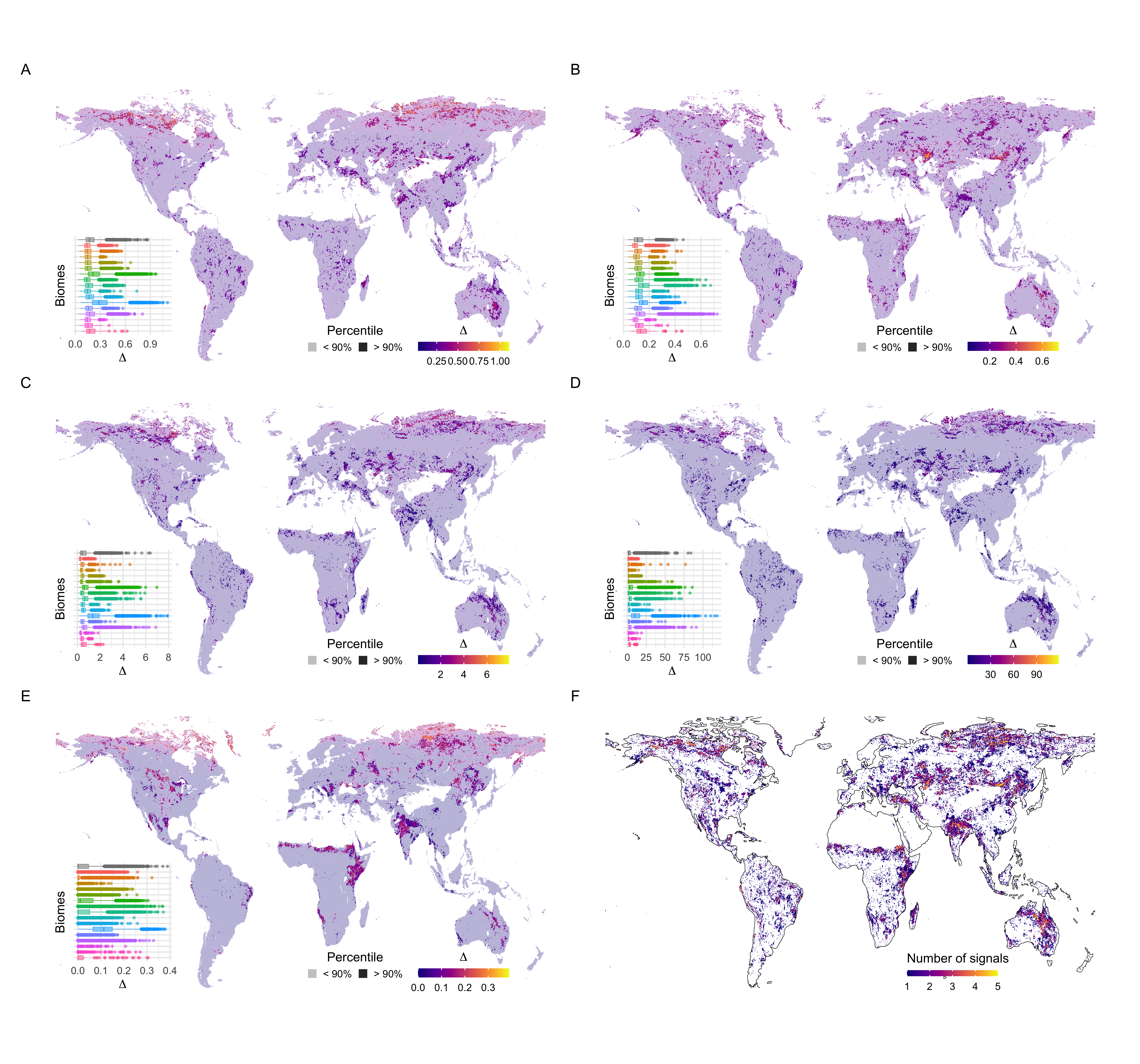

LAI pick up strong signals on desertic and xerophitic biomes
Temporal coherence
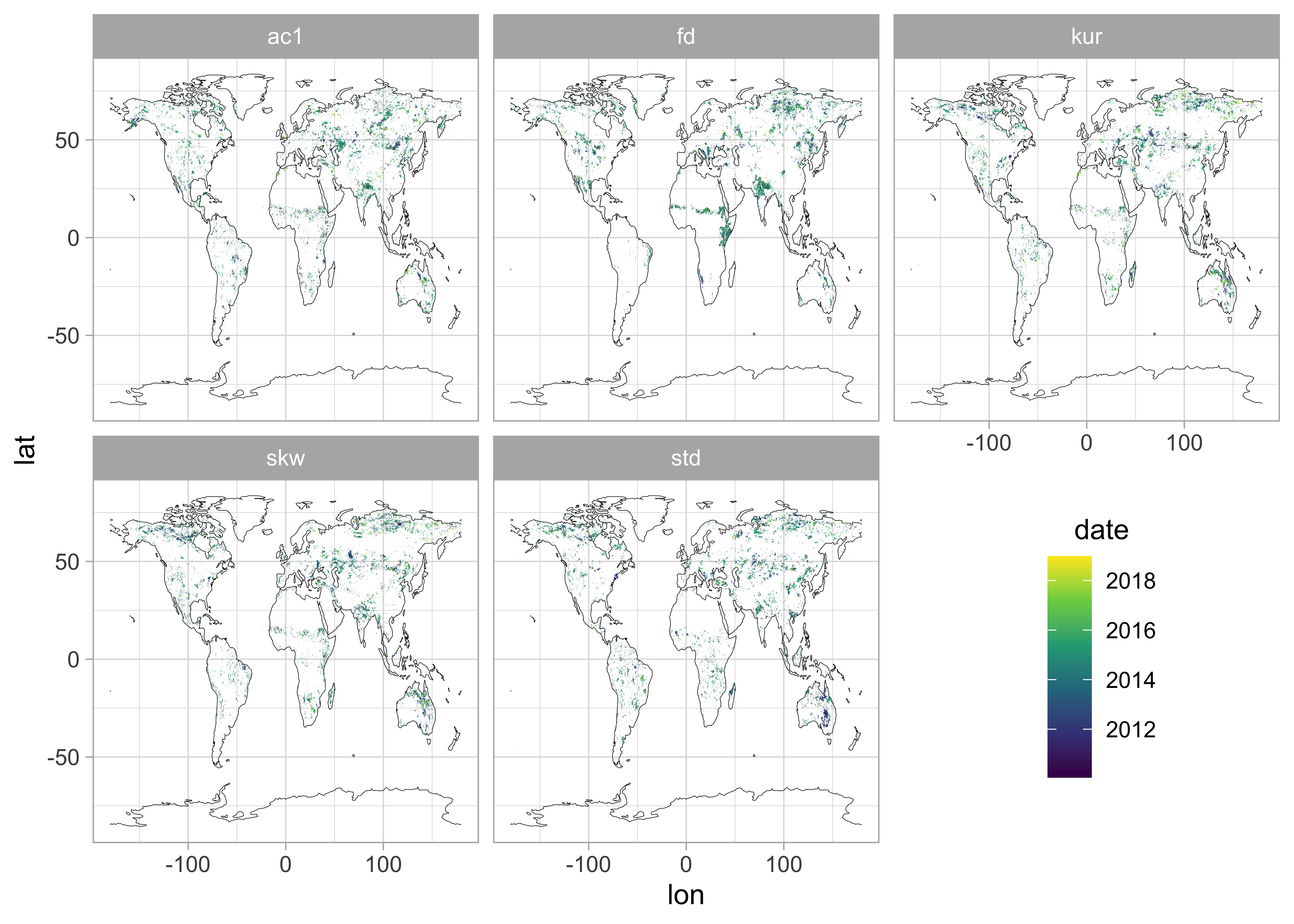
Break points not only cluster in space, also in time!
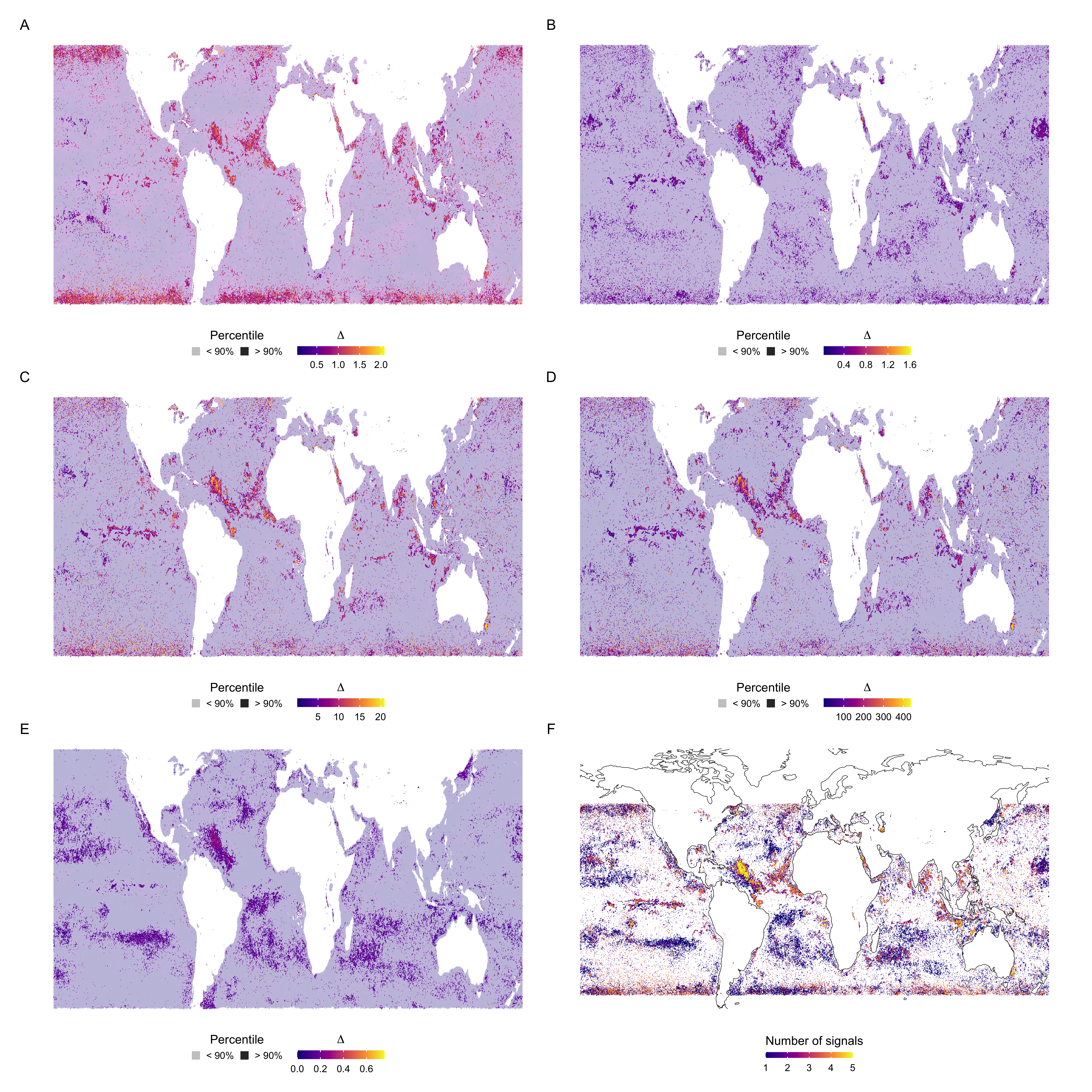
Next steps
- Minority of signals are coherent (CSD vs CSU)
- High agreement between kurtosis and skewness
- What is driving the signals?
- slow variables?
- stochasticity (var)?
- Be aware of limitations
- Not a prediction tool!
Get in touch!
Is it critical slowing down, speeding up, or both?
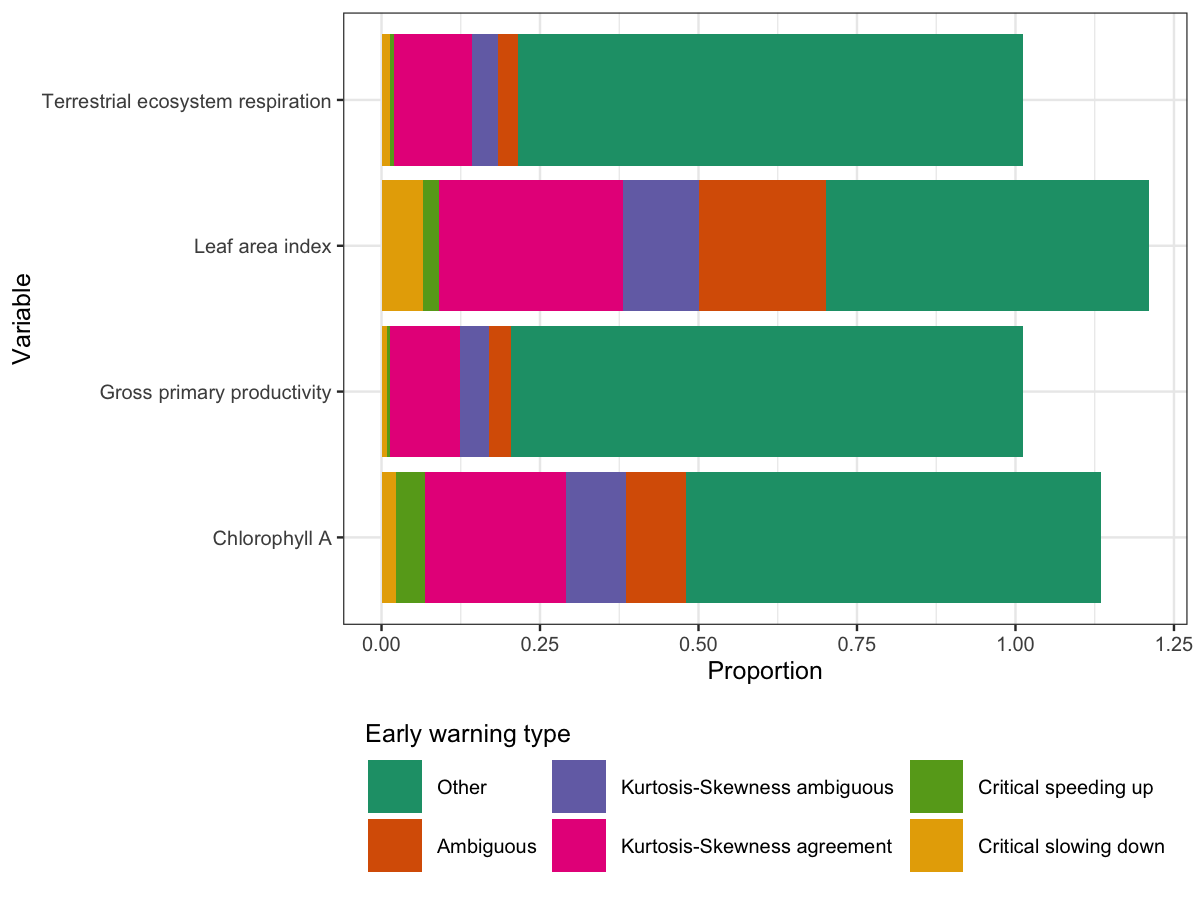
Research frontiers
Resilience is affected by the patterns of connections
Can regime shifts be interconnected? How?
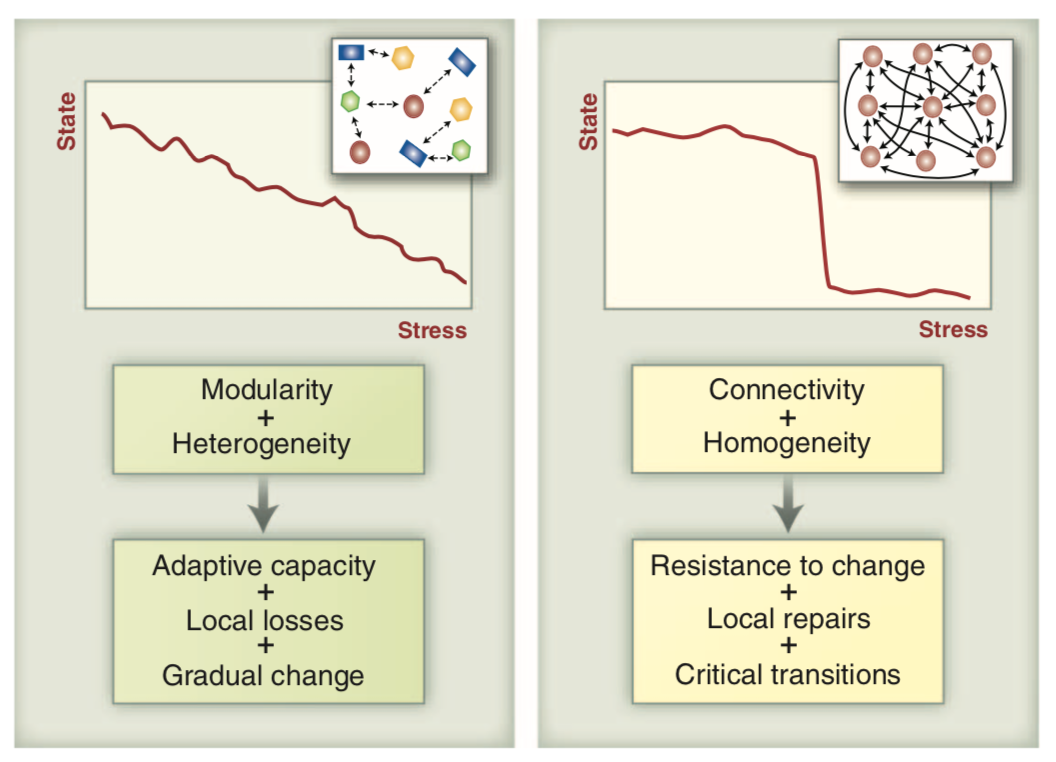
Scheffer et al 2012 Nature
TREE Planetary scale tipping points
Cascading effects
~45% of the regime shift couplings analyzed present structural dependencies in the form of one-way interactions for the domino effect or two-way interactions for hidden feedbacks
Conclusions
Ecosystems around the world are showing symptoms of resilience loss
Up to ~30% as proportion of areaBoreal forest and tundra showing particularly strong early warning signals
While elusive, resilience can be approximated from data
Critical slowing down | slow forcing: basin wider and less depth
Critical speeding up | stochastic forcing: basin narrows
Fractal dimension | loss of adaptive capacityResearch frontier: Can regime shifts be interconnected?
Yes, not only through climate, but empirical evidence is missing (Rocha et al 2018. Science)
Tack | Gracias
Questions?
email: juan.rocha@su.se
twitter: @juanrocha
slides: juanrocha.se/presentations/resilience_loss
preprint: coming soon!
Stockholm Resilience Centre
Subscribe to our newsletter at www.stockholmresilience.org/subscribe




